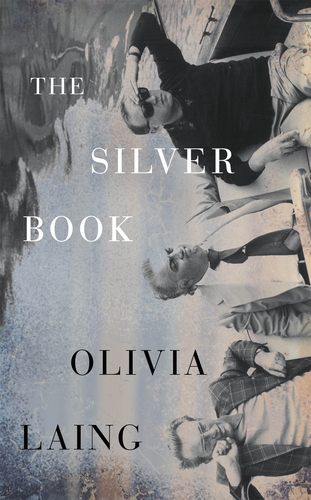ALICE BUNNY NORTH reads Olivia Laing’s The Silver Book.
The date is November 1st, 1975. The setting is Rome. Pier Paolo Pasolini sits at Pommidoro, a restaurant in the Tiburtino district of San Lorenzo, amongst a close group of friends. He has just finished shooting Salò, or The 120 Days of Sodom, a project the director describes as his “first film about the modern world”. Salò marks a shift in his interests, Pasolini explains to these confidants. The focus of his work is no longer Italy’s past—he now makes cinema for the twentieth century, and hypothesises openly about the country’s future post-World War II.
The work which would have emerged from Pasolini’s new path would never be made. Hours later, the artist was dead, killed in circumstances mysterious and divisive enough to warrant attention fifty years on. Enter Olivia Laing’s The Silver Book.
The novel, set to be published early November 2025—exactly half a century after Pasolini’s murder—is a fictionalisation of the events which preceded the scandal. In the plot’s foreground unfolds a love story between a listless Slade graduate, Nicholas, and a Venetian costume designer, Danilo. When they begin to work together for Pasolini, the novel becomes a distant yet intimate portrait of the late virtuoso—his fate looming over their romance in a deeply unsettling way.
Outside of his native Italy, Pasolini is remembered primarily as a filmmaker. Laing, however, paints him for what he really was: an iconoclastic, multidisciplinary artist, never confined to just one language. By referencing Pasolini’s early novels and poems—buried by Italy’s fascist government in 1942—Laing highlights his wide-ranging experimentation across mediums, including, but not limited to, screenwriting, journalism, filmmaking and literary criticism. Danilo’s character makes reference to the lifetime of state censorship the artist endured (including imprisonment for blasphemy in 1962, following the release of La Ricotta), and the subsequent public harassment and undermining of his work. Laing’s decision to highlight such hardships in Pasolini’s life is especially important when considered alongside his queer identity. In death, he suffered victim-blaming from the media when they sensationalised his rumoured cruising habits. Due to Pasolini’s sexuality, his murder was camouflaged as the consequence of a soured sexual encounter. The write-off was deliberately vague, explained away by the notion that one or both of the two eye witnesses were closeted. It is widely understood now that Pasolini’s murder was politically motivated, and in a 2006 trial, an ex-Mafia representative testified that Pasolini was targeted for possessing information on public administrator Enrico Mattei’s murder which “was going to shake the whole of Italy”.
But The Silver Book is a queer novel not just owing to Pasolini, or Danilo and Nicholas’ relationship. Queerness saturates every layer of the story, and Laing exposes both the rewarding highs and painful pitfalls of queer life.
It is, at its core, a political novel, set against the backdrop of Cinecittà studios in 1970s Italy. Each page is imbued with a distinctly sleazy quality. The characters bicker, gossip, fuck and drink. It feels like a muggy, overcast day. But beneath the petty, on-set dramas, Nicholas reckons with something infinitely more dark and secretive. Something he tried to leave in London.
One cannot label this book a thriller in the ordinary sense of the word. Suspense isn’t built through cliffhangers, red herrings, and deferral of revelation of major plot points. ‘What happened in London’, as Nicholas puts it, is discussed early on in the novel. His crime itself isn’t a huge point of mystery, and the horror of the novel isn’t stomach-churning, but psychological, masterfully spun into his solitary moments of reflection. Even when lying with Danilo at night, “awake, with one hand on his belly, the crack running through him, like a thing he can touch”, Nicholas feels “what happened in London – like it happened in another reality”. Laing plants seeds of terror in humid and darkened corners, letting them grow unnoticed, only to germinate much later on. They nurture in the reader a fondness for this seedy microcosm of society, which, once ripe, drops off the branch and splatters into dread.
The Silver Book is set to be released through Hamish Hamilton on November 6th, 2025. Featured image courtesy of Penguin Books.

